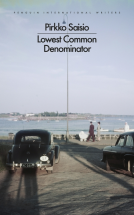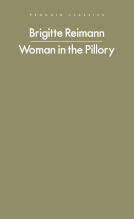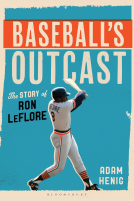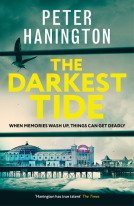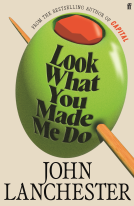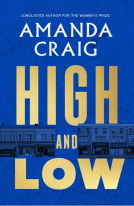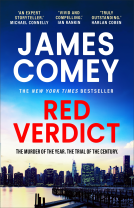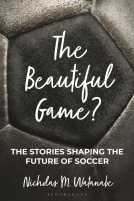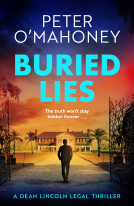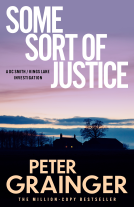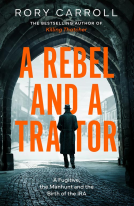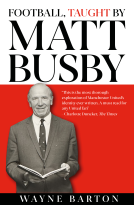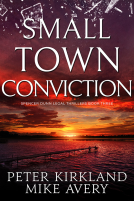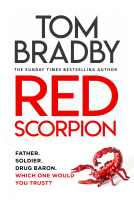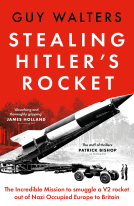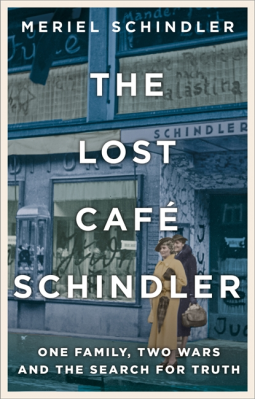
The Lost Café Schindler
One family, two wars and the search for truth
by Meriel Schindler
This title was previously available on NetGalley and is now archived.
Send NetGalley books directly to your Kindle or Kindle app
1
To read on a Kindle or Kindle app, please add kindle@netgalley.com as an approved email address to receive files in your Amazon account. Click here for step-by-step instructions.
2
Also find your Kindle email address within your Amazon account, and enter it here.
Pub Date 6 May 2021 | Archive Date 6 May 2021
Talking about this book? Use #TheLostCafeSchindler #NetGalley. More hashtag tips!
Description
'Rigorously researched, The Lost Café Schindler successfully weaves together a compelling and at times deeply moving memoir and family history that also chronicles the wider story of the Jews of the Austro-Hungarian Empire... It distinguishes itself through its combination of mystery and reconciliation.' -- The Times T2
'In tilling the past Meriel has uncovered the most fascinating - and devastating - family history. The Lost Cafe Schindler is not just a genealogical exploration, though; it sets out the wider experiences of the Jewish population of the Austro-Hungarian empire, weaving in the story of how antisemitism took root' -- Sunday Times
'An impressively researched account of Jewish life in the Tyrol up to and during the Second World War' -- Evening Standard
'An extraordinary story - so cadenced and so moving.' -- Edmund de Waal, author of The Hare with Amber Eyes
'An extraordinary and compelling book of reckonings - a journey across a long, complex and deeply painful arc of history, grippingly told - a wonderful melding of the personal and the political, the family and the historical.' -- Philippe Sands, author of East West Street
'Lingering tastes and luscious aromas permeate Meriel Schindler's affecting 'The Lost Café Schindler'' -- Wall Street Journal
'A significant benefit for family historians is that her reading, sources and resources offer guidance that others might follow and use in their own research.' Who Do You Think You Are?
'A well-researched account.' -- The Observer
By reconstructing - through letters, photos and archival documents - the specific experiences of her family, Meriel articulates a revealing, often heart-breaking insider's perspective that illuminates the broader narrative.' -- Irish Examiner
'The scale of the crimes committed during these years can never be fully comprehended, but through tales like these they become relatable and the sense of loss, shared.' -- Press Association
'Compelling and beautifully written... a remarkable and inspiring story that attests to the strength and compassion of the human spirit in overcoming the tragedy of persecution... Fascinating family history.' - Daily Express
'Schindler builds her story patiently, tracking her own journey in unravelling it' - i
***
Kurt Schindler was an impossible man. His daughter Meriel spent her adult life trying to keep him at bay. Kurt had made extravagant claims about their family history. Were they really related to Franz Kafka and Oscar Schindler, of Schindler's List fame? Or Hitler's Jewish doctor - Dr Bloch? What really happened on Kristallnacht, the night that Nazis beat Kurt's father half to death and ransacked the family home?
When Kurt died in 2017, Meriel felt compelled to resolve her mixed feelings about him, and to solve the mysteries he had left behind.
Starting with photos and papers found in Kurt's isolated cottage, Meriel embarked on a journey of discovery taking her to Austria, Italy and the USA. She reconnected family members scattered by feuding and war. She pieced together an extraordinary story taking in two centuries, two world wars and a family business: the famous Café Schindler. Launched in 1922 as an antidote to the horrors of the First World War, this grand café became the whirling social centre of Innsbruck. And then the Nazis arrived.
Through the story of the Café Schindler and the threads that spool out from it, this moving book weaves together memoir, family history and an untold story of the Jews of the Austro-Hungarian Empire. It explores the restorative power of writing, and offers readers a profound reflection on memory, truth, trauma and the importance of cake.
Available Editions
| EDITION | Other Format |
| ISBN | 9781529332056 |
| PRICE | £20.00 (GBP) |
| PAGES | 432 |
Average rating from 12 members
Featured Reviews
 E R, Reviewer
E R, Reviewer
I found this book incredibly moving as Meriel Schindler revealed her family’s history and the traumatic times her family lived through. I particularly liked the style in which she chose to write her family history, incorporating the details of her research in the present day as part of the story, as she delved deeply into her family’s past. Having been brought up with what may have seemed exaggerated stories told by her father, Kurt Schindler, she was able to verify a lot of what she had been told about the people and events that occurred under the Nazi regime. Highly recommended.
 Greville W, Reviewer
Greville W, Reviewer
An impeccably researched and written family history and also a personal memoir unravelling all sorts of mysteries of this branch of the Schindler family and the tales told her by her fraudster father.
Lots here for anyone interested in Innsbruck, food and cafe society and how the family ran a smart cafe for many years that was the place to be.
It is a deeply comfortable and comforting read and sometimes the truth is stranger than fiction.
Unusual, original, moving and highly recommended.
 Sarah S, Librarian
Sarah S, Librarian
Wow! What a book, at first I wasn't sure if it was just another family Holocaust memory book but there was so much more in here that it felt far more like a scholarly read like Phillippe Sands than anything else.
The claims of Meriel's father seemed far fetched but in fact the truth was far stranger.
I am a huge fan of a series of children's books set in Innsbruck in the 1920s & 30s which do cover a little of the material here but (as is to be expected in kidlit) so much wasn't covered.
I've already recommended this book to about a dozen people and would be most surprised if it didn't make my top books of the year in December.
Readers who liked this book also liked:
Pirkko Saisio
Biographies & Memoirs, General Fiction (Adult), Literary Fiction
